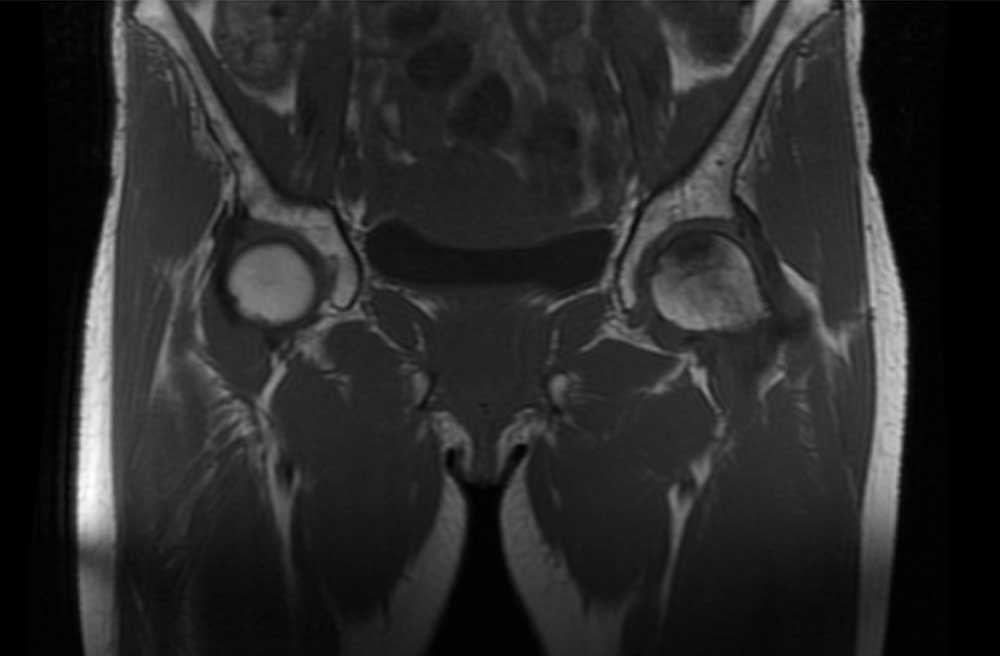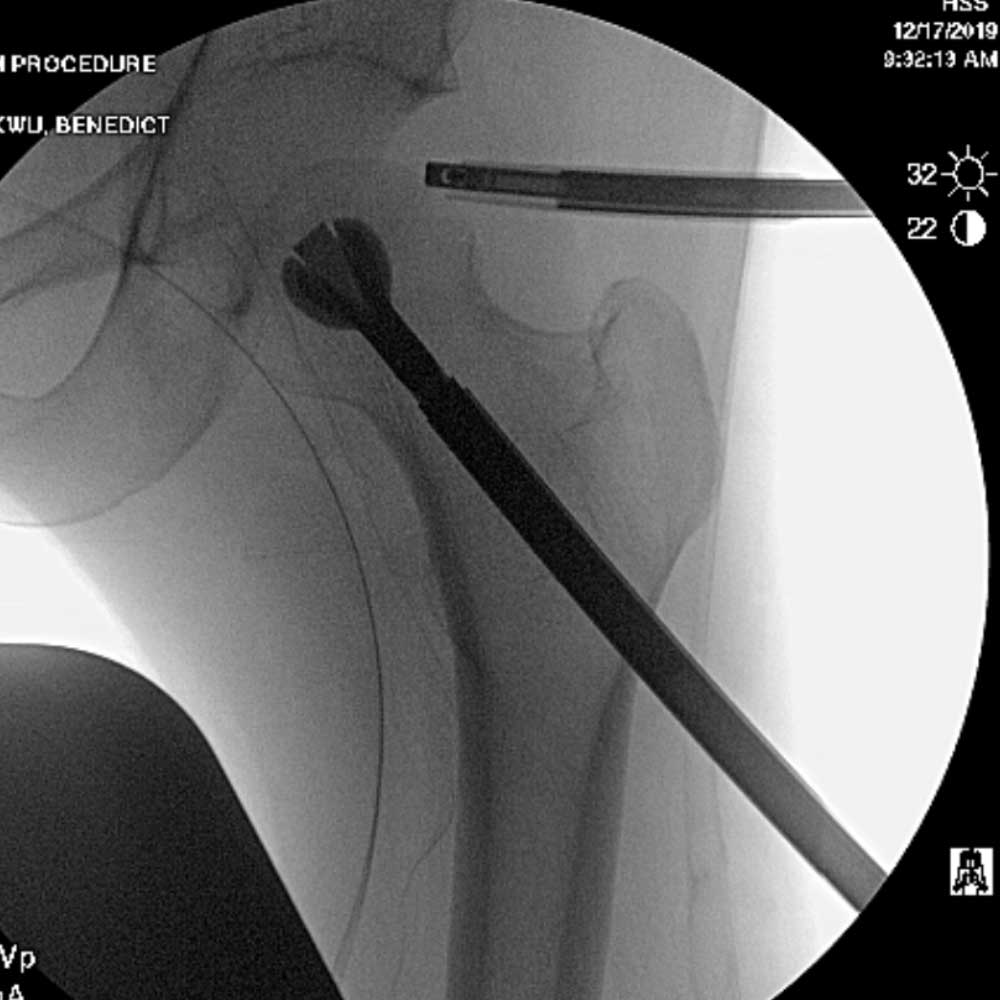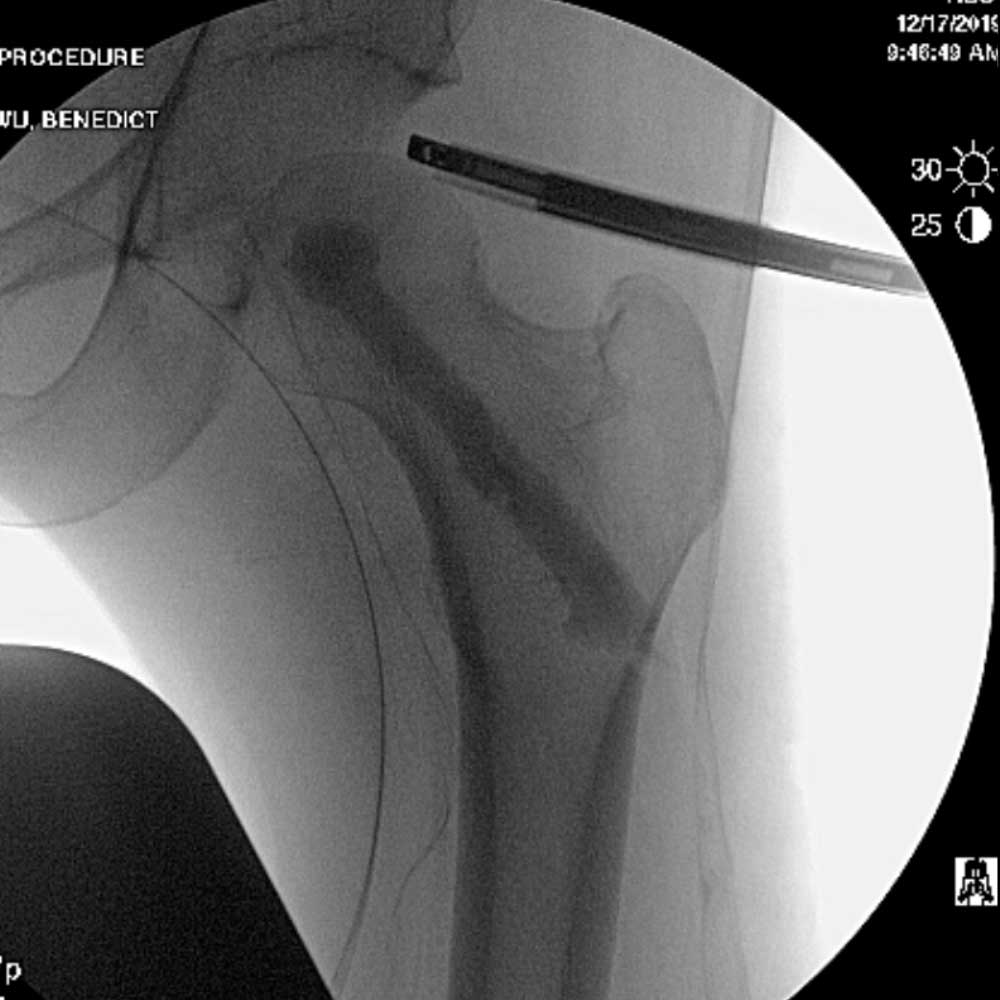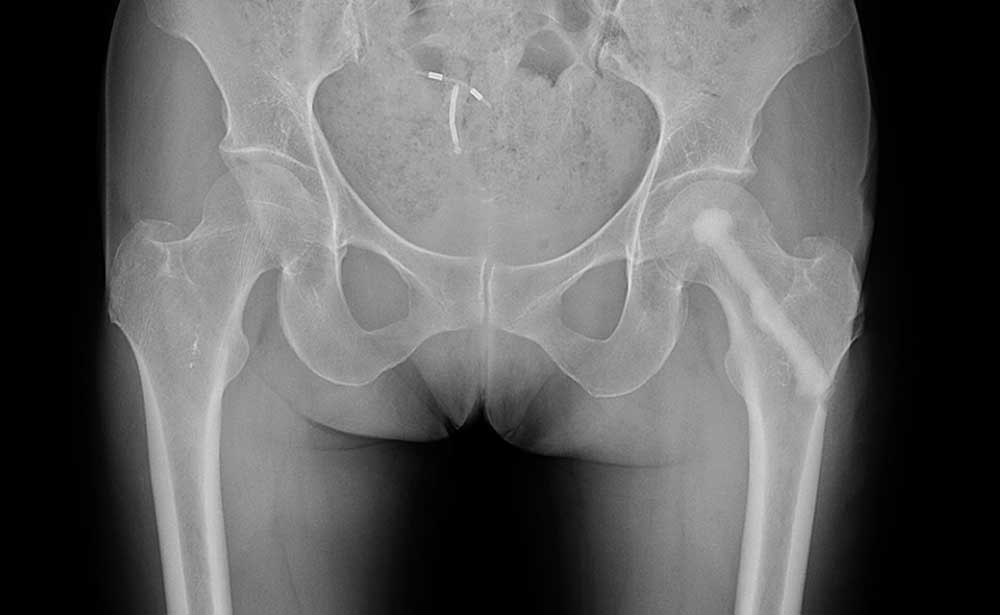Dr. Benedict Nwachukwu, Hip Core Decompression Surgeon in NYC, Answers

Dr. Benedict Nwachukwu, Hip Core Decompression Surgeon in NYC, Answers:
Q: What is hip core decompression surgery, and who can benefit from it?
Hip core decompression is a surgical procedure used to treat avascular necrosis (AVN) of the hip—a condition where limited blood supply causes bone tissue in the femoral head to break down. The procedure involves drilling into the affected area to relieve pressure and stimulate new blood vessel growth, which can help preserve the joint and reduce pain.
Hip core decompression is a surgery for hip avascular necrosis, which happens when there is not enough blood supply to the bone, causing bone degeneration within the femoral head. During surgery, drilling within the location to reduce pressure and promote the development of new blood vessels is performed, helping ensure a healthy joint and alleviate pain.
Common indicators for considering hip core decompression include:
- Persistent groin or buttock pain
- Difficulty standing or bearing weight on the affected hip
- Stiffness and reduced range of motion
If you are experiencing these symptoms, it may be time to consult with an orthopedic hip doctor to determine appropriate treatment options.
“Early intervention with procedures like core decompression can be instrumental in preserving the hip joint and delaying or avoiding the need for more invasive surgeries.”
— Dr. Nwachukwu, Board Certified, Fellowship-Trained Orthopedic Surgeon
What is a core decompression of the hip?
Hip core decompression is a surgical procedure used to treat osteonecrosis, or avascular necrosis (AVN) of the hip. It involves drilling one larger hole, or several smaller holes into the dead bone of the femoral head (top of thigh bone) in order to relieve pressure in the bone. This allows for increased blood flow by creating channels for new blood vessels to nourish the affected areas of the hip. This procedure can slow down or stop the destruction of the bone and hip joint. At the time of core decompression surgery, Dr. Nwachukwu will commonly inject stem cells and bone substitute into the femoral head in order to encourage bone re-growth and provide structural support. Additionally, core decompression is commonly performed with a hip arthroscopy and during this procedure, Dr. Nwachukwu will visualize inside of the hip joint in order to clean up any inflamed tissue or joint injury. Dr. Benedict Nwachukwu, orthopedic hip surgeon can successfully perform core decompression for patients in Manhattan, New York City and surrounding New York boroughs who have osteonecrosis.
Why would I need a core decompression in my hip?
No one knows exactly why the femoral head begins to die, it can be from trauma or a genetic disorder. Hip necrosis (bone death) also called osteonecrosis in the hip has been linked to steroid use, alcoholism, lupus, sickle cell disease and repeated dislocations. A hip decompression relieves the pressure within the bone and can allow for proper healing without the need for a hip replacement.

Pre-Operative MRI with Left Hip AVN
How is a hip core decompression procedure performed?
After determining that a core decompression is the best treatment option, Dr. Nwachukwu will perform this surgery using a minimally invasive technique called arthroscopic core decompression. He will use a live x-ray imaging machine (called a fluoroscopy) to guide special surgical instruments to the damaged bone. Through a small incision in the hip, he places a guide wire through the neck of the femoral head, to the necrotic (dead) area. Dr. Nwachukwu then drills a hole along the wire and removes the dead bone. To replace the dead bone, Dr. Nwachukwu will inject stem cells and bone substitute into the area. The pressure on the bone is immediately reduced and creates space for new blood vessels to grow, which nourish the existing bone. In addition to using fluoroscopy, Dr. Nwachukwu uses hip arthroscopy to identify and clean up any areas of structural damage inside the hip joint. After the procedure, sutures are used to close the small incisions.

Intraoperative hip core decompression performed safely under direct visualization with hip arthroscopy

Intraoperative hip core decompression performed safely under direct visualization with hip arthroscopy – injection of bone substitute with stem cells
What are the risks of arthroscopic hip surgery?
During a traditional hip arthroscopy, the hip joint needs to be open in order for the instruments to safely pass into the joint. The traditional way to open the joint is to place a large padded post in the patient’s perineal area to provide counter-traction while the leg is pulled taught. Dr. Nwachukwu is one of approximately 20% of hip surgeons in the USA who have switched to postless hip arthroscopy. This new technology for accessing the joint eliminates the perineal post completely by using a special surgical table to create the traction required for the surgery resulting in quicker recovery without complications such as numbness in the genital area and possible nerve damage.
What is the recovery time after a core decompression in the hip?
Patients will be given a set of post-operative protocols following a hip core decompression. Generally, patients will follow specific physical therapy exercises, to retain and improve range of motion and to strengthen the hip. If bone grafts were used as part of this joint preservation procedure, healing can occur for 6 to 9 months after surgery.

6 month post-operative with Joint preserved
For more information regarding hip core decompression as a joint preservation treatment, or to discuss treatment options available for your hip pain, please contact the office of Benedict Nwachukwu, MD, orthopedic hip specialist serving Manhattan, New York City and surrounding New York boroughs.
